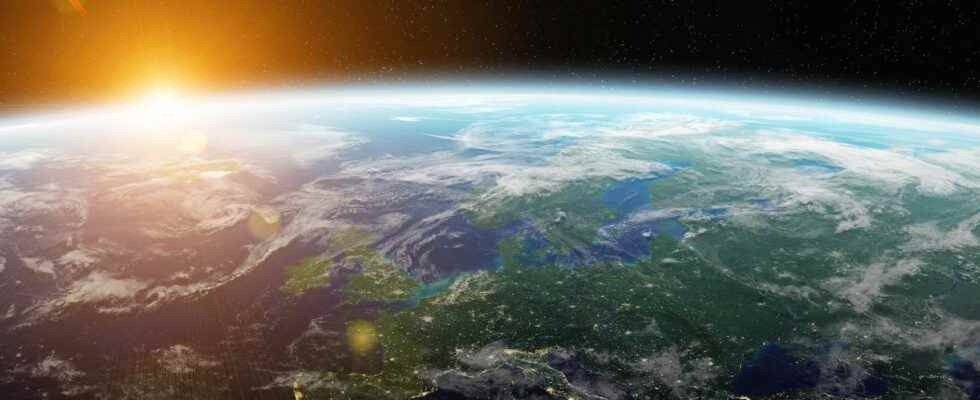Human activities have an impact on the Earth. Our uncontrolled greenhouse gas emissions are pushing our climate to a limit we shouldn’t want to cross, researchers warn today. Beyond this limit, it would be chaos. And our Planet would definitely become uninhabitable.
You will also be interested
[EN VIDÉO] Global warming: our planet in unknown territory In the preliminary version – which only covers the first nine months of 2021 – of its annual State of the Global Climate report, the World Meteorological Organization (WMO) confirms the trend of global warming. For the first time, the bar of a rise of 1°C compared to pre-industrial averages has been crossed over the period of the last twenty years. But the report above all highlights the many extreme weather phenomena that have occurred in 2021 and their consequences for the planet and for humanity. © World Meteorological Organization
The greenhouse gas that we emit warm the climate global. Unbearable temperatures, repeated extreme weather events, sea level rise. The predicted consequences of this global warming are nothing to cheer about. And some researchers from the University of Porto (Portugal) warn us today — before, however, having been re-read by their peers — that these consequences which appear to us to be so unfortunate could, in reality, be only the least of our worries. They fear that our uncontrolled consumption of fuels fossils is dragging our climate into a chaotic state. Then there would be no hope of getting out of it.
Remember that the Earth has experienced major changes in the climate regime in the past. In question, variations in the orbit of our planet or an increase in its volcanic activity. But the global warming we are experiencing today is unprecedented. Because it is caused by human activities.
The brutality of this climate change gave researchers from the University of Porto the idea of modeling it as a phase transition. Which shifts the Earth’s climate from one weather pattern to another. Much like water undergoes a phase transition when an ice cube melts to become liquid.
Our Earth would become uninhabitable
In this context, it becomes interesting to use what the physicists call for a logistic map to describe the different possible trajectories for the global climate depending on the choices we are going to make — reduce our emissions greenhouse gases or not. Because this mathematical tool is perfect for describing situations in which certain variables can grow, but eventually naturally reach their limit. This is exactly how researchers envision our environmental impact. Like a growing variable for more than a century, but which will one day reach its limit. Because the human population cannot increase indefinitely, for example.
Their logistic map of humanity therefore makes it possible to assess how our emissions of carbon dioxide (CO2) will evolve depending, for example, on the efficiency of our technologies. It then makes it possible to analyze how the climate of our Earth will operate the phase transition induced by humans.
In the best-case scenario, the climate will stabilize at a new average temperature higher than the one we experience today. The news is not great. Because this temperature is the one that is announced as the origin of difficult weather conditions for a large part of our Planet. But the news is still pretty good. Because these conditions will be stable.
You really want to know for the worst case? It’s in this one that the team sees a climate system going completely chaotic. In the mathematical sense of the term. With some weather situation totally unpredictable. Which change from decade to decade. Or even from year to year! Able to switch from very hot to very cold with the snap of a finger. A chaotic behavior which, above all, becomes totally impossible to channel. Putting an end to all hope of ever making Earth a habitable planet again. According to the researchers, this could happen if a certain temperature threshold is exceeded. Hence the need to do everything possible to avoid it. To achieve this, always the same and unique solution: immediately limit our greenhouse gas emissions!
Interested in what you just read?
